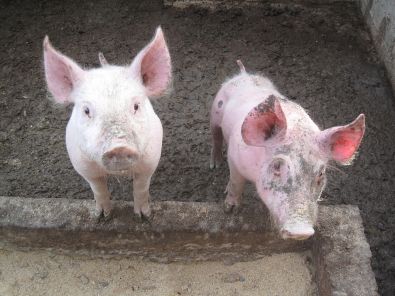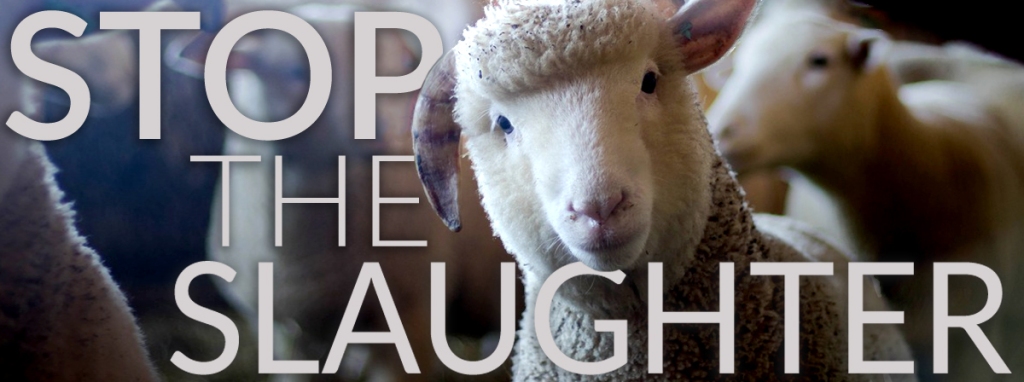A Vegan’s Guide to Tackling Naysayers

Wikimedia Commons
Source Ecorazzi
By Dr. Frances McCormack
One of the skills required of an advocate for veganism is adaptability. Since no two advocacy conversations will ever be the same, it’s almost impossible to predict the trajectory of any such discussion. Although there are some good templates and guidelines (Francione’s and Charlton’s example of engaging moral concern and following it up with rational argument, demonstrated in its fullest form in Eat Like You Care, for instance), the details of these kinds of encounters will be determined by so many factors both in and out of the advocate’s control. We advocate in different spheres, online and off, and to people with whom we have varying levels of familiarity; the only constant is our message and, depending on nuances of our delivery and the attitude of the listener, sometimes things go wrong.
Now, I’m not talking about catastrophic results; in several years of advocacy, I’ve only had one discussion about veganism that turned sour, and I wrote about it here; interestingly, that was not an advocacy encounter that we sought out, and it was one in which our interlocutors had already, it seemed, planned the conversation as an intellectual contest (“you win,” they conceded to my bewilderment; I hadn’t realised it was a competition). But while such results (unfriendings, defensiveness, etc.) are extremely rare in my experience, I will not pretend that they won’t happen. If people can get into heated discussions over sports teams and toothpaste-tube lids (or their absence), then they can, and will, get into heated discussions over moral issues.
If you advocate, you have to be prepared that things won’t always turn out the way you planned and, dispiriting as this may be, it should not deter you. Let’s take a look at some of the things that could go wrong, and how you might address them.
The Unreceptive Listener
The person to whom you’re talking may not care about animals. They’ll usually signal this to you quite early on, either explicitly (by stating that they don’t care about animals) or implicitly (by not demonstrating any kind of empathy towards animals). These discussions are not necessarily fruitless; the moral principles of veganism can still be clear to those who think logically and can identify with the ideas of justice and fairness that underpin veganism. In this case, framing your argument in terms of the avoidance of causing unnecessary suffering may be useful; I also recommend asking questions of your interlocutor to draw out more information about their own moral system in order to give you a foundation on which to build your responses. At other times, however, you may find you’re your interlocutor is either devoid of empathy towards animals or cannot be convinced that moral principles of fairness can apply to nonhumans. If you are advocating offline and you feel there’s little point in continuing the discussion, you’re probably right: you won’t always be able to turn someone who is morally indifferent about animals into someone who recognises their moral worth, and there are plenty of people who do care and to whom you may be better spending your time advocating. In this case, withdraw from the discussion politely, and leave your interlocutor with something to think about. If you’re advocating online, though, there may be a benefit in continuing the discussion for a short while at least (if your interlocutor is willing) as there may be people reading silently who will take on board what you say.
The Perpetual Fault-Finder
You’ll invariably meet someone (if you advocate frequently enough) who has nothing but objections to make to your rational argument about why animals are not ours to use. Answers to the most common of these objections are found in Eat Like You Care, but be prepared to play several rounds of “Defensive Omnivore Bingo”. Some of these objections arise from genuine concern, curiosity, or even misconceptions, so always give your interlocutor the benefit of your intellectual generosity and answer questions that you may have heard a thousand times before (“where do you get your protein?”or “won’t cows’ udders explode if they aren’t milked?”) with courtesy and a genuine will to help. You will, however, occasionally encounter some questions that are too frivolous to be sincere (“why did God make animals out of meat if he didn’t intend us to eat them?”*). Such questions are usually asked with a self-satisfied and smug grin, and although you may find yourself clenching your teeth and losing patience, calmly bring the topic back to the central moral points that you wanted to make. Again, it’s useful to continue fruitless discussions longer online than you would in person for the benefit of any silent readers. Try to avoid resorting to the same kind of mockery that you feel your interlocutor is using; humour is okay, but always err on the side of magnanimity with those to whom you are speaking.
The Offended
You will occasionally meet people who react in a very negative way to the vegan message. Some of these will be people who consider themselves animal lovers but who are trying to reinterpret that perception of themselves in light of this new information. Again, always err on the side of patience and kindness. There may come a time, however, when it becomes counterproductive to continue the discussion with that person at that particular point in time if the conversation turns circular or becomes too heated, but ending a discussion about veganism does not necessarily mean that you can’t resume again at a later date. Always try to end on a positive note, pointing out any areas of common ground. If, however, you are feeling in any way threatened during a conversation about veganism (or anything else!), do trust your instincts and withdraw as soon as you can; your safety is important.
Our Own Worst Adversaries
Sometimes things can go wrong in vegan advocacy because we just can’t let the topic go. I’ve seen advocates online who make their point clearly, who present the moral message unequivocally, but who then feel that they have to have the last word and who keep the conversation going to the detriment of their own time and energy levels. Always question your own intention in continuing a discussion that seems to be going nowhere, and remember the value of a planted seed. There are millions of people out there who care about animals and who are ripe for conversations about veganism; focussing on winning the argument detracts from the real purpose of advocacy, which is to attempt to persuade people to align their behaviour towards animals with moral principles that they already hold.
Most of your advocacy encounters will take the form of interesting and enjoyable conversations. These conversations are important because the more of us there are talking about veganism as a moral imperative, the more we chip away at the societal attitudes to animals that keep people exploiting. Think of the conversations that don’t go so well as a planted seed for the listener and as an opportunity to practise, reflect, and hone your skills, and you won’t go too far wrong.
—————————————————–
* The most bizarre objection to veganism ever heard by my partner when he once had such frivolous objections volleyed at him was “if humans weren’t supposed to eat meat, they wouldn’t have needed to invent [yes, invent!] fire to cook it.” I, on the other hand, once heard “in a vegan world we’d never have the chance to meet cows. If we didn’t meet cows, we’d never learn to care about them.”
Order a FREE vegan kit: http://www.peta.org/living/food/free-vegan-starter-kit/
Take PETA’s Cruelty-Free Shopping Guide along with you next time you head to the store! The handy guide will help you find humane products at a glance. Order a FREE copy HERE
Want to do more than go vegan? Help others to do so! Click on the below for nominal, or no, fees to vegan literature that you can use to convince others that veganism is the only compassionate route to being an animal friend.
PETA: http://www.petacatalog.com/catalog/Literature-39-1.html
Looking for merchandise? Action for Animals has a very good selection : http://store.afa-online.org/home.php?cat=284
Have questions? Click HERE
a gentle touch
they way we teach.
we state what we
believe,
we do not preach.
by our actions we
try to display
the reasons to live
the kind and
compassionate
way.
Karen Lyons Kalmenson













































a gentle touch
they way we teach.
we state what we
believe,
we do not preach.
by our actions we
try to display
the reasons to live
the kind and
compassionate
way.
LikeLiked by 1 person
i love it, it’s perfect and moving, thank you, my dear!
LikeLiked by 1 person
You are so very welcome and thank you.
LikeLike
I’ve had this post in my inbox since July and finally made the time to read it this morning. Thanks for sharing!
LikeLike